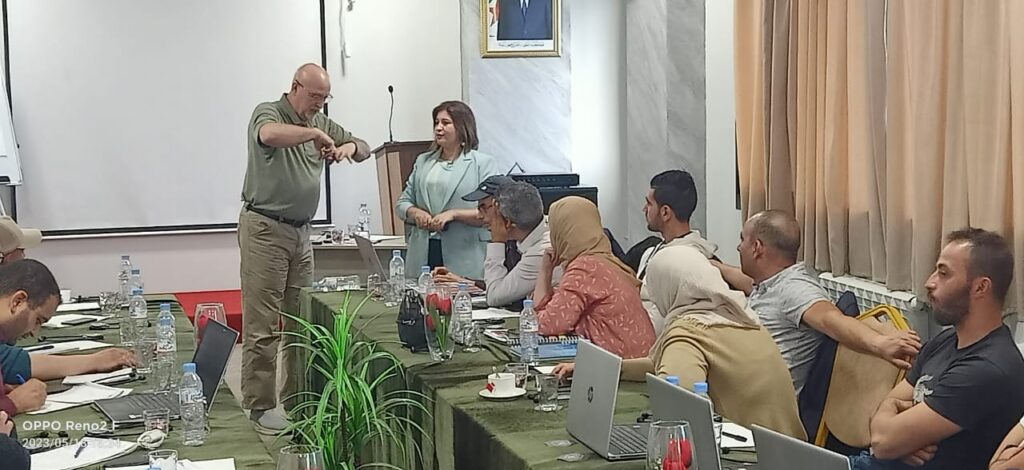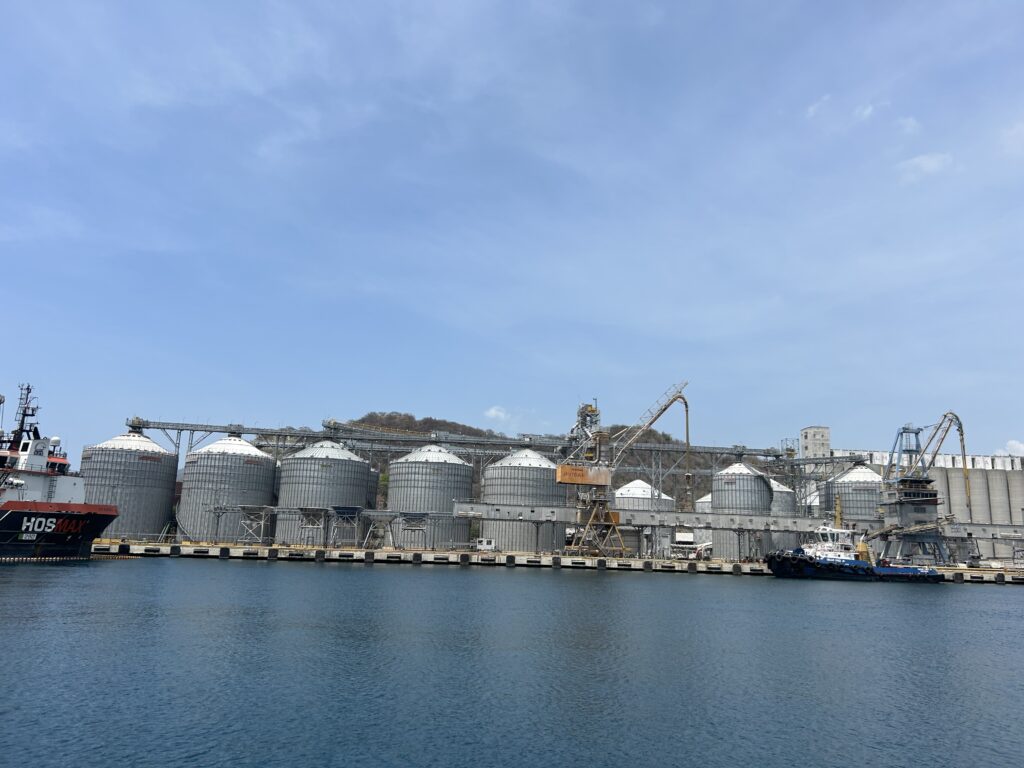
To Crush or Not to Crush?
For nations seeking to increase food security, the soy supply chain plays a critical role in delivering affordable protein and energy for food, animal feed and more. As the soy market and industry develops, country and company leaders must tackle a foundational question: Should soybeans be crushed domestically or should soy components like soybean meal or soybean oil be imported?
In many markets, USSEC comes alongside those leaders as they consider whether to crush or not to crush soybeans. And, USSEC is positioned to provide support, regardless of the best answer for a given market.
Take the contrasting markets of Algeria and Colombia. These two markets exemplify factors influencing the crush industry decision. They also showcase the support USSEC delivers, meeting customer needs in all types of markets.
To Crush: Algeria Develops Soy Crush Industry
Algeria’s economy is predominantly shaped by oil and gas exports, promoting financial independence. As a nation, it has remarkably low external debt on a global scale.
In a strategic shift toward economic resilience, Algeria’s investments in diversification include revitalization of the agricultural sector, aimed at both achieving food self-sufficiency and reducing dependence on hydrocarbons.
“Historically, Algeria imported soybean meal from Argentina,” explains Brent Babb, USSEC regional director for the Middle East and North Africa (MENA) and Europe. “Given the economic goals, the country chose to build its own crush industry.”
Algeria established its first soybean crushing plant in December 2019 and a second in August 2021. USSEC has played a pivotal role in that emerging soybean crush sector by providing tailored training sessions, with collaboration that started in 2019 alongside the crushing industry.
“Our training helped enhance processing efficiency and optimize results,” Babb says. “The focus on soybean quality control analysis has equipped laboratory staff at the crushing plants with a deeper understanding of soybeans and soybean meal components.”

Soy imports in Algeria have shifted from meal to whole soybeans, and the volume of imports has risen steadily. Currently, four crushing plants are operational, with two in construction, contributing to an estimated four-fold increase in total crush capacity. The sector is expected to increase daily production to 23,000 metric tons within the next couple of years.
“Crushers and integrators in the market now distinguish between soybean origins,” Babb adds. “They increasingly express a preference for U.S. Soy, and provide large market for U.S. soybeans. Looking ahead, we plan to integrate upcoming crush plants into feed industry training programs, demonstrating our commitment to sustained technical support.”
For example, USSEC hosted a Animal Feed Manufacturing and Quality Control Conference in Algeria in late April 2024. More than 70 participants learned about the quality of soybeans from different origins, the importance of soy quality for animal health and the significance of optimizing feed formulations. Such events support Algeria’s evolving poultry and aquaculture sectors.
According to Babb, this proactive approach and ongoing support for the rapidly growing crush industry in Algeria will translate to lasting preference for U.S. Soy.

Not to Crush: Colombia Capitalizes on Increasing U.S. Crush Capacity
Colombia stands on the other side of the soybean crushing industry decision. With a steadily expanding aquaculture industry, a growing swine sector and increasing poultry production, the country needs soybean meal.
“A Colombian company considered building soybean crush capacity in the country,” says Carlos Salinas, USSEC regional director for the Americas. “After deliberation and market analysis, the company decided against that investment for several reasons.”
The combination of government instability, the global value of the Colombian peso and the capital required to build and operate a crush plant all contributed to that decision. Plus, U.S. soybean crushing capacity is growing to meet demand for low-carbon fuel feedstocks.
“The U.S. has lower interest rates for business investments, and the Colombian company knows that U.S. crush capacity is increasing,” Salinas explains. “For crushers operating in the U.S., the return on investment is much better than it would be for a facility in Colombia, and the business risk is less. Colombia can take advantage of that by continuing to import U.S. soybean meal, letting U.S. companies carry that lower risk and capitalizing on the increasing availability of soybean meal.”
Colombia has become the third-largest market for U.S. soybean meal, and it is likely to continue importing soybean meal to meet protein demand for livestock feed and other markets.
“Feeding high-quality U.S. soybean meal in the poultry, pork and aquaculture sectors helps keep protein production more competitive in Colombia and other Latin American markets,” Salinas notes.
USSEC serves that and other links in Colombia’s soy supply chain in various ways.
For example, many companies in Colombia partner with the Soy Excellence Center (SEC) of the Americas to provide employee training and development. The regional SEC Advisory Council includes two representatives from Colombia, one from the poultry industry and one from the food industry.
Collaboration between USSEC and the National Association of Bread Manufacturers, or ADEPAN, resulted in a new category of baking products that incorporate soybean flour from U.S. Soy. Soybean flour increases the nutrient value and protein content of these products.
USSEC regularly coordinates trade team visits between Colombia and the U.S., bringing soy supply chain representatives from Colombia to the U.S. and U.S. farmers to customers in Colombia. USSEC also hosts major industry events like CrushCon Americas and the Americas Agricultural Cooperators Conference in Colombia, ensuring these events are readily accessible to Colombian customers of U.S. Soy.
For leaders in markets contemplating whether or not soybeans should be crushed domestically, feel free to reach out to a regional USSEC team member for insight.


Colombia is capitalizing on the increasing soybean crushing capacity in the U.S. by continuing to import U.S. soybean meal. USSEC provides technical support for customers throughout Colombia, which has become the third largest export market for U.S. soybean meal.
This story was partially funded by U.S. Soy farmers, their checkoff and the soy value chain.
# # #